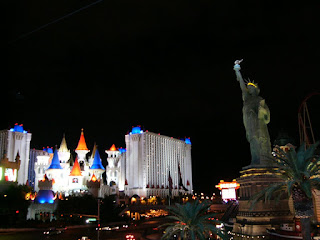Like any other venture, owning timeshares has its pros & cons. If you’re reading this blog, you are either looking at buying a timeshare, or you already own one and you’re not a happy owner who is looking to sell or rent it.
If you’re looking at buying one, please be very wary, talk to owners, real estate agents, other investors and be informed about what you’re getting into. If you’re on the market to sell/ rent your timeshare, this post sheds a little light on what alternatives are out there. I will provide more details on such
alternatives in later posts.
Selling your timeshare:
It is not a sellers market and its a rough road ahead for sellers - bear in mind, people like me, who love to travel are always looking for good bargain deals, and there are plenty available in this economy. If I can get the same unit/ property for a fraction of the cost of the unit for a week, plus not pay fees associated with a timeshare, what would I do? It’s a no-brainer.
Let me give you an example: I recently visited Canmore & Banff in Canada last month. I got an awesome deal in a resort called Lodges at Canmore. It was the peak of summer (end of August), and I got the deal for $110 USD a night. It was a beauty- 2-bedroom condo, with a patio, fireplace, full kitchen, washers, parking, grill, etc. Now if I google timeshares for resale on Canadian Reort Vacation Club, I see a 2-bedrom comparable in Canmore is selling for approx. $7,000, with an annual membership fees of $500. Why would I buy it?
Well, if you have decided that selling is what you want to do, there are several online resources available, websites like myresortnetwork.com, and these websites usually charge a listing fee (anything from USD $30 - USD $500). You can also go through brokers or other organizations. Remember, it is a very tough market out there, especially for timeshares, so it might be a while before you can find a buyer, and you might have to incur huge costs, just trying to sell it.
Some things to keep in mind when selling your timeshare:
1. Please do lots of research and homework on the market, current resale price of comparable units, demand & supply. Talk to other owners, agents, brokers, and get as much data as possible before you actually price your timeshare for resale.
2. Resale price is very important. Research on a comparable resale-, and try to price at or below the lowest average to have the best chance of selling your timeshare.
3. Be very careful about upfront payment fees while selling your timeshare. I have heard horror stories about sellers being charged thousands of dollars, on the pretext of ‘reaching out to prospective buyers’, but nothing concrete is ever done. Do not pay upfront fees, if it looks fishy or not legitimate.
4. Negotiate a commission/ payment after the deal is done- this motivates the broker or the agent to work hard for you. Always use a licensed and legitimate broker. Keep in mind though that broker fees might cost you almost 20% -30% of your sales price.
5. Your resale price will never equal what you paid for it to the developer. Times depreciate over time, and due to the economy, some have depreciated almost 99%.
6. Advertise as much as possible, and for as little as possible- use free advertising websites, posters in your resort, etc. tug2.net is a good marketplace for timeshares. Ebay and Craigslist are good websites as well- they will also give you a good idea of what other timeshares are selling for.
7. Some companies offer to buy your timeshare for their own use and in return want you to get an appraisal from an independent appraisal company that they recommend. Sounds like a good deal, right? Refuse such a offer- many such companies have cheated sellers for millions of dollars in the form of appraisal fees. A good forum to learn more details is: http://tugbbs.com/forums
8. Be careful of foreign buyers/ transactions/ banks- avoid those if at all possible.
9. Be wary of your resort company or any other offering you some amount for your timeshare and in turn tempting you to buy another.



